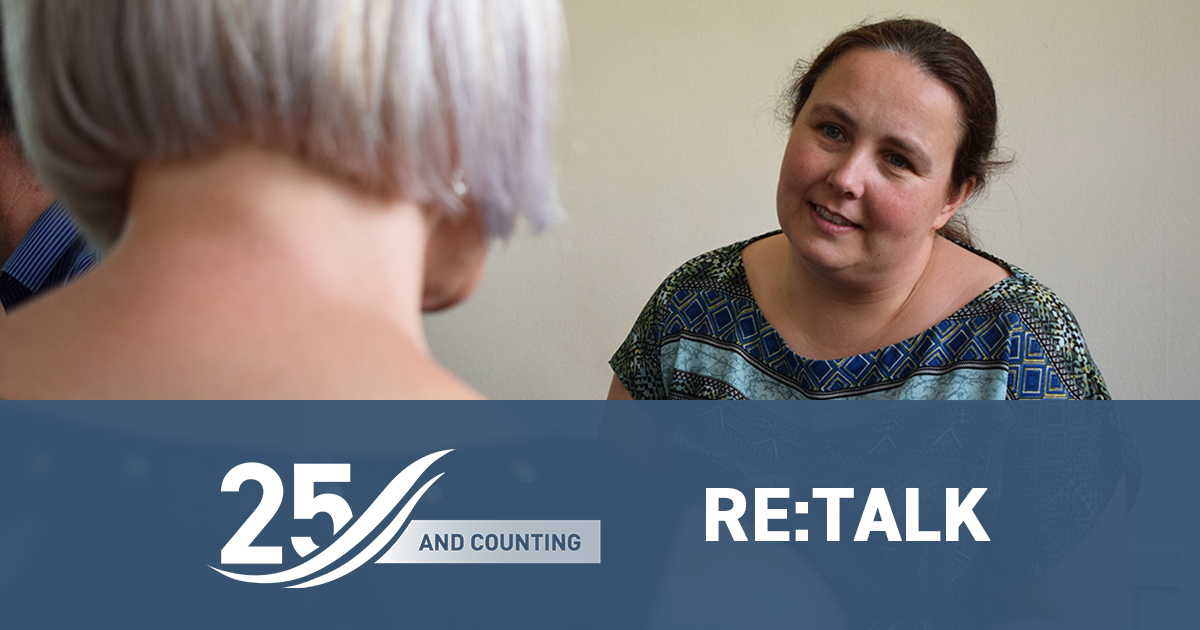
Posted on: June 17th, 2024

To celebrate our 25th Anniversary this year, we sit down with Founder, Dr Mike Talbot, to look back at some of the key moments in UK Mediation's history.
In the sixth entry of this series, we explore UK Mediation's relational model, Re:Talk and how it came about.
1. In July 2019, UK Mediation launched their relational model of mediation, Re:Talk. Tell us about the origin.
Dr Mike Talbot: Along with running UK Mediation and building up our client base, I was completing my doctorate in late 2016, all to do with the application of psychotherapy principles to conflict resolution. I could see there were plenty of overlaps between the practice of (gestalt) psychotherapy and the practice of interpersonal mediation. So, the doctorate allowed me an opportunity to dig into the theory a little more, and to come up with a model for how we could be more effective mediators by learning lessons from psychotherapy practice. We trialled and refined this approach for a time, and then around mid-2019, we launched Re:Talk: a relational model of conflict resolution.
Re:Talk has now been integrated into the practice of our own mediators and it also runs through our suite of training programmes.
2. Why is a relational model important to what UKM does?
MT: One of the principles that we work by at UK Mediation is understanding the people who are in conflict as a means to helping them to resolve that conflict. So, a relational model helps us to do just that. It gives us a framework for answering several questions about why people get into conflict in the first place, and what they might need in order to move on from it, including:
What does a well-functioning interpersonal relationship look like?
How exactly does that relationship go wrong?
How do other people around the disputing pair affect the conflict?
Exactly what does the mediator add when getting involved as a dispute resolver?
What needs to happen to bring about dialogue?
At what point can we consider a dispute to be resolved?
3. In what settings can the model be used? Are there applications where the model is more appropriate than others?
MT: Re:Talk applies to any situation in which two or more people’s dialogue has broken down and where that dialogue needs to be restored. So, this can mean any situation where people are no longer talking and where their interactions are all about blame, fault, and retribution. They might be using formal measures to try and attack or discredit one another; perhaps one or more of them is at the point of planning to leave a place of work, exit a family, or move away, or maybe they are terminating a contract or other business relationship.
There are some disputes where the parties are in no way interested in rebuilding dialogue; they just want a monetary settlement to a financial or contractual dispute and would prefer never to speak to the other person again. In these, the minority of cases, a deal-making approach or ‘civil mediation’ (an evaluative process which is arguably not mediation at all) is more needed, and there is little emphasis on the quality of interaction between the two.
However, in the great majority of cases, getting people talking is the key to reaching a resolution, and this is what we at UK Mediation do. We need to base our practice on a clear and consistent insight into people’s psychological predicament as a means to supporting practical change in how they can better communicate with each other, both now and into the future. And this is exactly where Re:Talk comes in.
4. Where can people find out more about Re:Talk?
MT: On our website would be the first point of call as we have a dedicated page on there to find out more. We have also run a live webinar in the past - presented by me - which introduced the model.
And, of course, we are more than happy to chat to anyone about the work that we do and the theory behind it all. You can email us at hello@ukmediation.net or speak to one of our office team on 0800 772 0778.